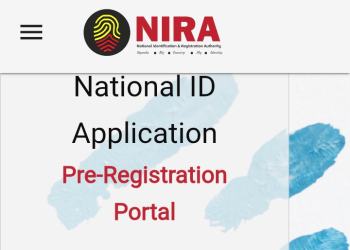
Airtel Uganda’s latest financial results paint a clear picture, Ugandans are choosing data over voice calls, and the shift is transforming the telecom industry.
In its half-year results for the period ending June 30, 2025, Airtel reported a 30.4% jump in data revenue to Ushs 525.7 billion, making up nearly half of all service revenues. Just a few years ago, voice calls were the telco cash cow. Today, they’ve taken a back seat to data bundles.
This change is showing up not just in the number of new customers but also in how much data existing users are consuming. Airtel’s data subscribers grew by 25.9% to 7.5 million, while average usage per user climbed 22.6% to nearly 6GB per month.
And the network is feeling the heat. Overall traffic surged 57.4%, forcing Airtel to accelerate its infrastructure rollout. Over the past six months, the company has added 176 new 4G sites, rolled out 1,793km of fibre, and installed 150 additional 5G sites to keep pace with demand.
One striking metric: 86.9% of all traffic now runs on 4G, up from 80.4% a year ago. This sharp shift towards faster, more reliable connections shows that Ugandans want more than just “being online,” they want quality, speed, and seamless digital experience.
The Uganda Communications Commission (UCC) backs this up. Its Q2 2025 market report shows 16.5 million mobile internet subscriptions, nearly matching the country’s 17.6 million smartphone users. Data consumption continues to soar while airtime purchases steadily decline. Social media dominates online activity, with WhatsApp leading at 9.2 million users, followed by TikTok at 8.8 million, YouTube at 6.1 million, and X (formerly Twitter) at 1.1 million. TikTok alone accounts for a staggering 56% of total data usage, followed by WhatsApp at 24% and YouTube at 13%.
There’s also a social dimension to this shift. Smartphone penetration on Airtel’s network has reached 39.9%, supported by device financing programs like Airtel Badili, Mogo, and other partnerships that have made smartphones more accessible and affordable.
Meanwhile, the MyAirtel app has quietly grown into a digital hub, with 1.25 million monthly active users. This is evidence that customers now prefer managing their accounts through self-service, rather than standing in line at service centres.
The big picture? Uganda is quickly becoming a data-first economy. From entertainment and education, to small businesses selling on WhatsApp and rural learners connecting to online resources, the impact is visible everywhere.
If the trend continues, Airtel’s data business won’t just be a revenue driver, it could become the defining pillar of the company’s entire business model.




















